Wellington City Council found themselves in a common predicament—a looming deadline for the replacement of their Google Search Appliance, with a short timeline to act.
Deeply embedded within the council infrastructure, the GSA was implemented across multiple websites, including the main council and library website, and was used by up to 3,000 people every hour. Needless to say, search was a critical feature of the website. Wellington City Council could simply not tolerate any disruption or even mere degradation of its services during the process.
A race against the time
One eye on the clock, the other looking ahead. With just 22 days between the start of the project and the effective go-live date, there was no time to waste.
Given the timeline, Wellington City Council took a sensible and conservative approach: a like-for-like replacement of their Google Search Appliance, ensuring neither end-user search features nor administrative controls were lost in their migration to a new platform.
Despite the pressing timeline, council staff were also looking to the future and were keen to ensure that their new search platform would grow with their anticipated needs. Specifically, they wanted to know if their chosen platform had the capabilities to help them improve further the search experience for their users.
From a user perspective, the council was keen to provide a significantly enhanced search experience to end-users with robust search functionality and user interface features.
Internally, the council wished to have greater administrative controls to empower both the content and development teams alike, such as customising results to better answer users’ queries. Moreover, they wanted the ability to easily scale licenses up to extend their search solution across additional websites and content repositories.
No interruption
The project was eventually a success, with no decline in the search service.
Content from all of Wellington City Council’s most common sites was quickly indexed, allowing Squiz DXP Search solution to deliver in record time results equivalent, or even in some cases, improved over GSA’s own results. To achieve such a feat, Squiz sped up the ranking process by using data provided by the council to train and finetune the search algorithm.
Indexing multiple sources
The multi-source indexing feature not only indexes content from the Wellington Council website itself but also other sites with a more specific purpose, such as transportprojects.org.nz and planning for growth.wellington.govt.nz, that can benefit users in their search.
“Among the considerations in doing that were how to display the search results and whether they should clearly indicate the customer was going to a different site,” explains Jane Hadaway, team lead at the Wellington Council.
To indicate to the user that they will be redirected to a different website, the decision was made to insert the full URL under each result, as it is commonly done on Google for example.
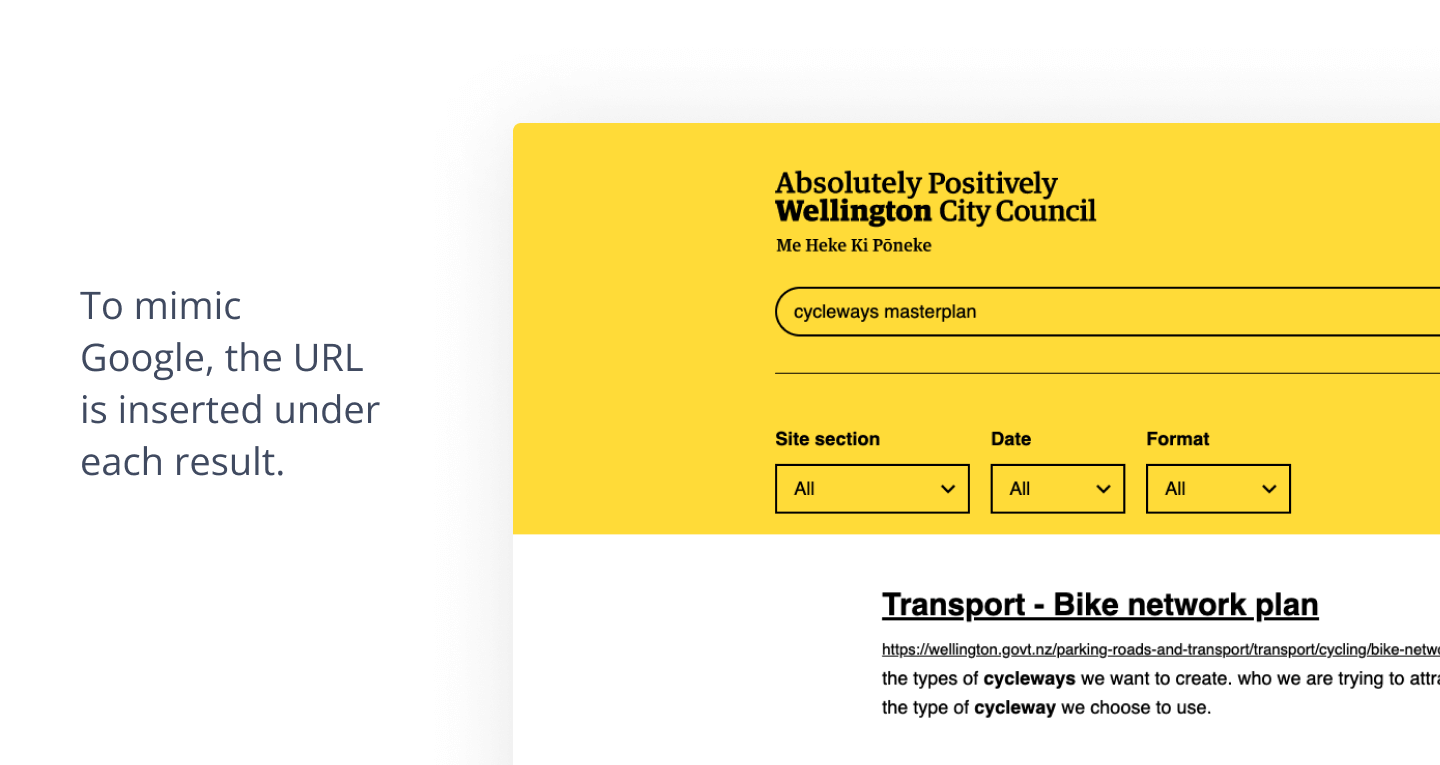
Leveraging search for better recommendations
Among the many improvements the Wellington Council has implemented, using the Results Curator features has significantly improved the experience for users.
For example, whenever a user types one to three digits followed by a word, the council suspects the user might be entering an address and therefore suggest them a link to their Property Search database at the top of the search results.
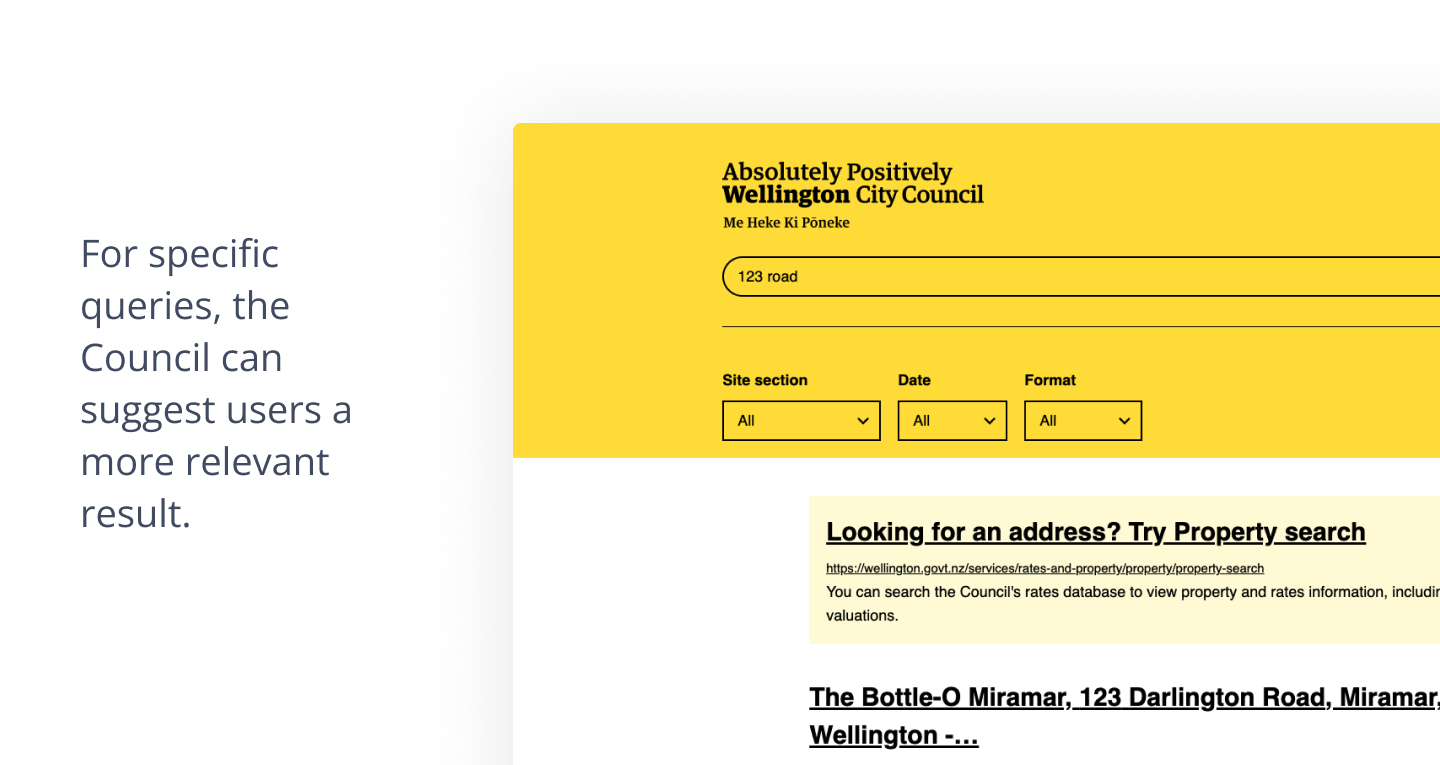
Similarly, when users type “SR” followed by 6 digits, the council suggest a link to their contact page, and when users type a series of 9 digits, they suspect the user to be looking for parking ticket information.
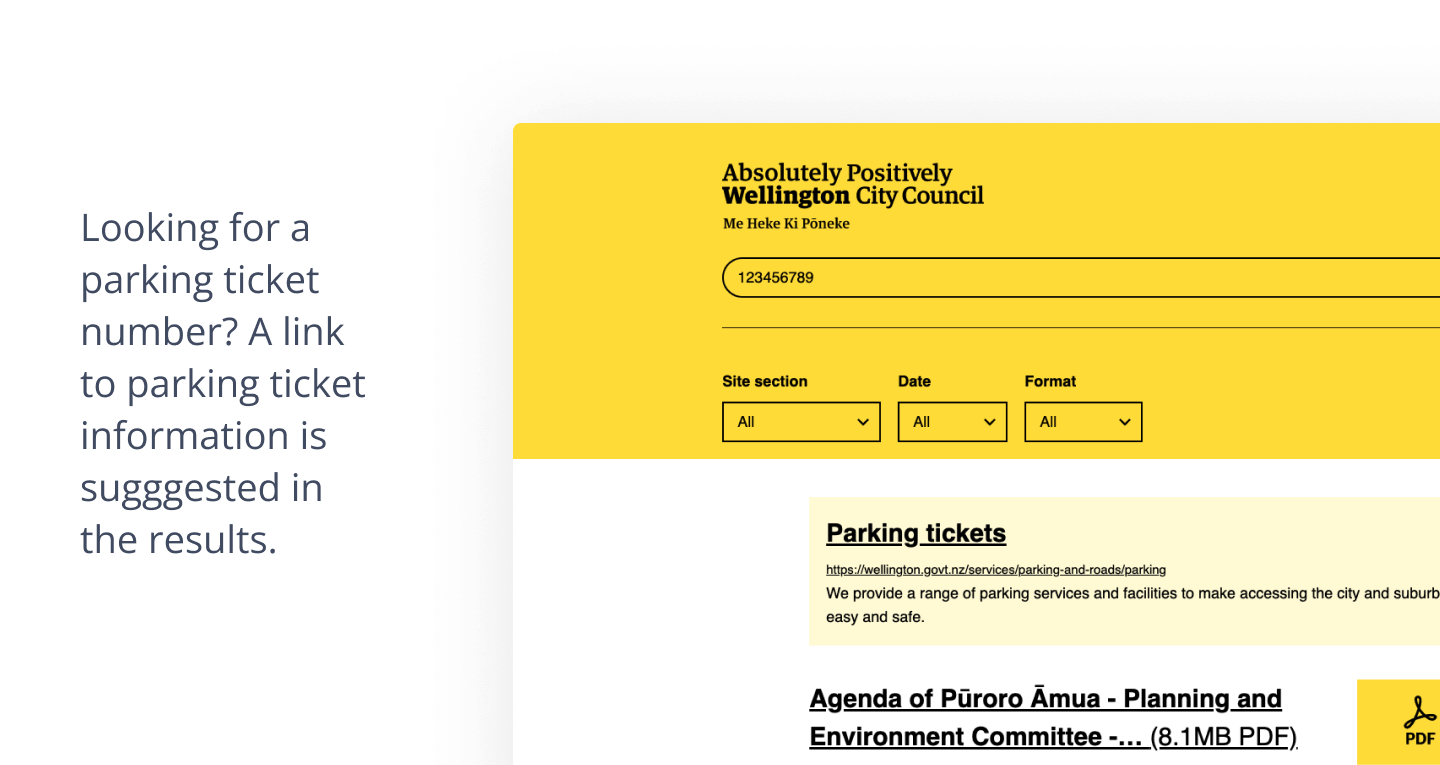
Predictive search feature is another feature that helps users find an answer to their questions faster by guiding them while they are typing their queries. Particularly useful when the user is unsure what he should type, autocomplete provides “guiding rails” 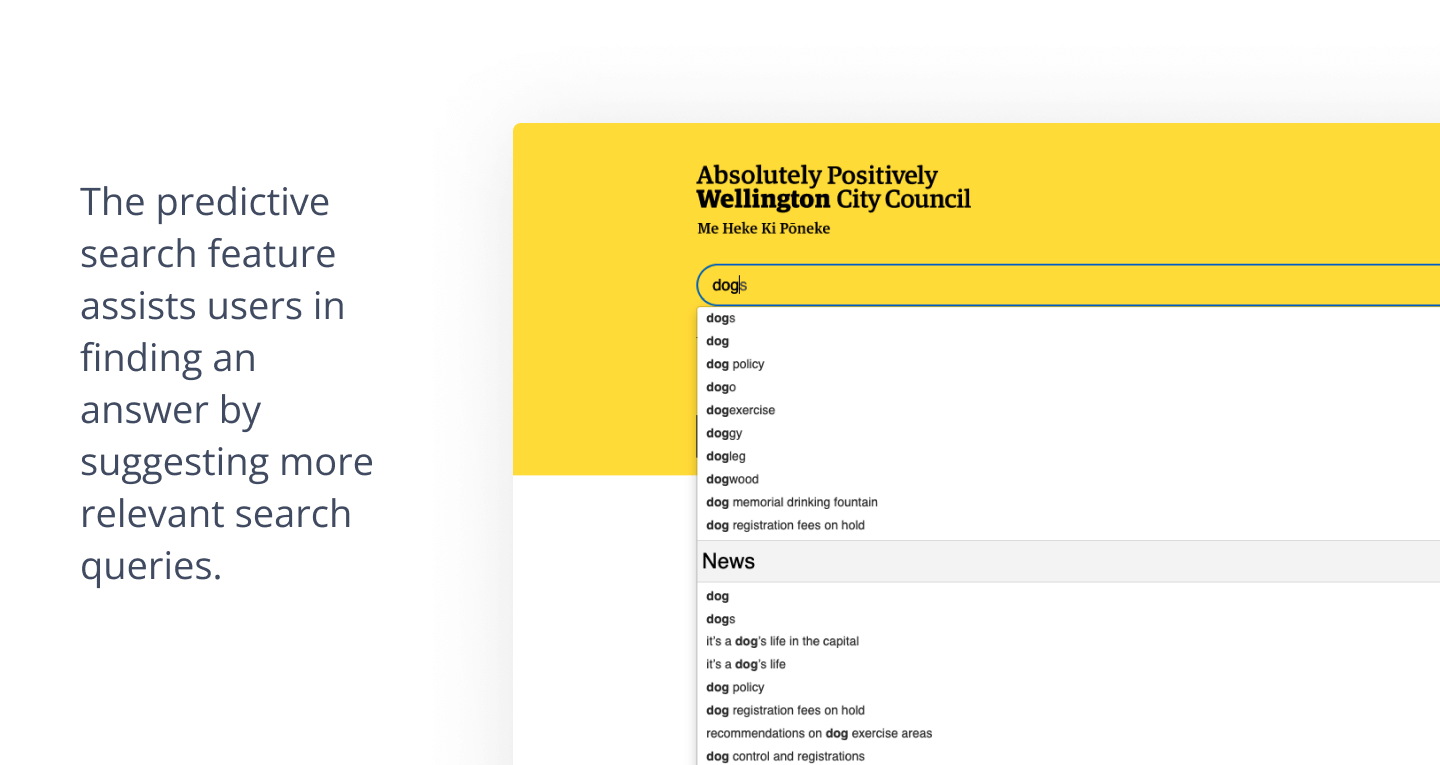 for the user toward an existing webpage, reducing the number of searches that return no result.
for the user toward an existing webpage, reducing the number of searches that return no result.
Finally, the council also has to cater to synonym queries. For example, most users who want to get more information regarding parking tickets can just type so in the search bar. However, the name of the offense given in NZ legislation is “stationary vehicle offense”, and some users have been searching for his term on the council website. They had to adapt their results to make sure the appropriate result would show up for that term.
Prioritizing news and content
The Wellington council often runs annual events for the benefit of the local community and tourism. However, without proper content prioritization, regular users might see content from previous years in their search results, providing outdated information that could confuse them.
Therefore, the council has decided to prioritize fresh content in their results: anything older than 12 months is automatically pushed down on the result page.
Search statistics also help the internal content team to prioritize their content strategy and decide what needs to be written next. An unusual amount of searches for a specific topic returning no or poor results gets the attention of the team who then decides whether the query deserves additional information from the council, with the ultimate goal to always better serve users.


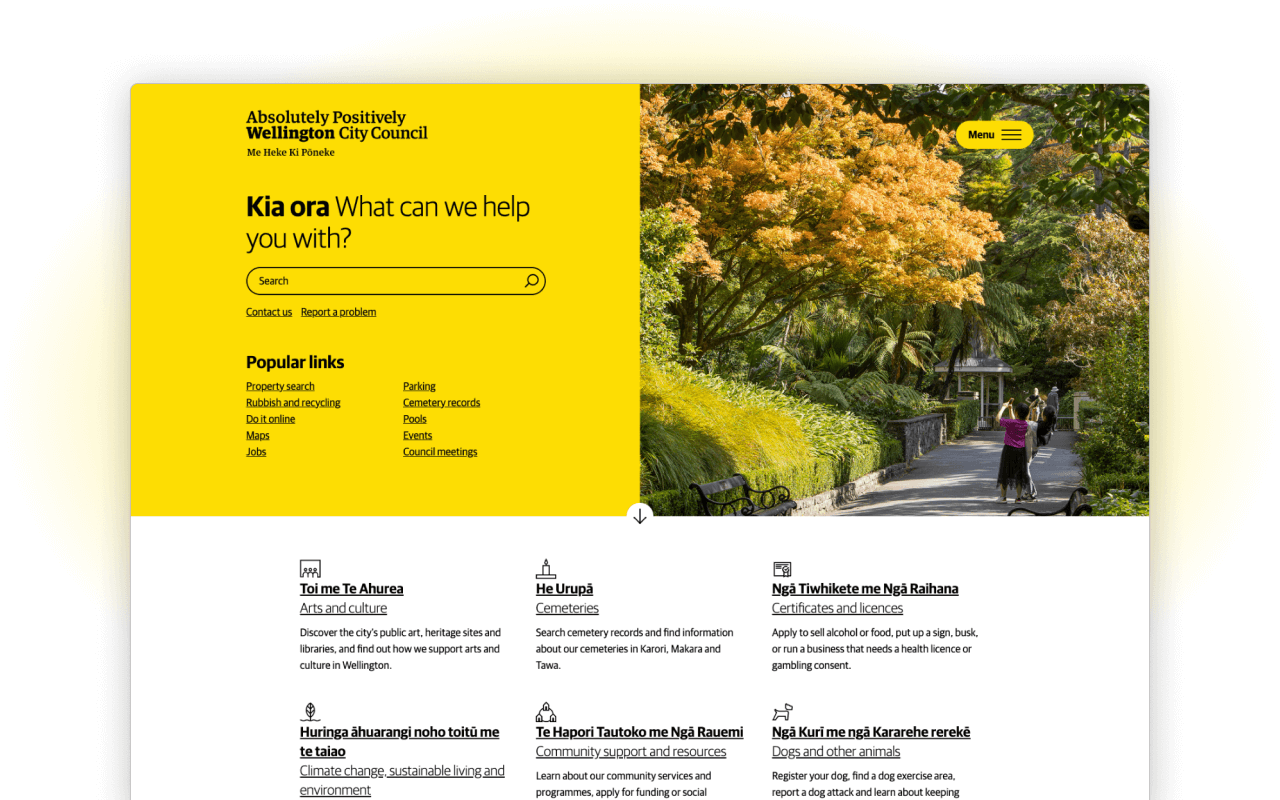



 for the user toward an existing webpage, reducing the number of searches that return no result.
for the user toward an existing webpage, reducing the number of searches that return no result.